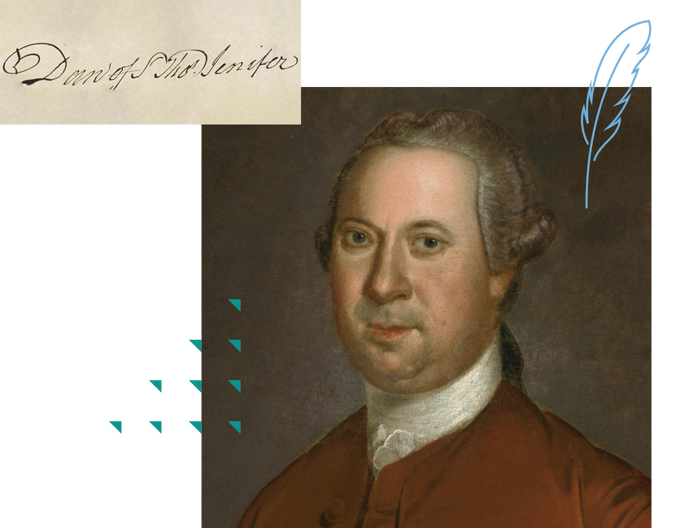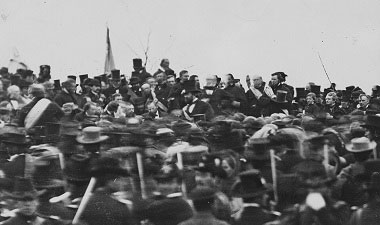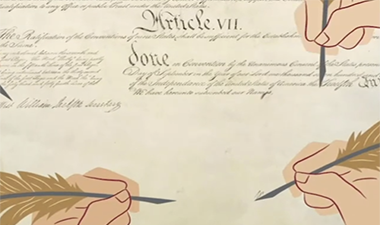Summary
Daniel of St. Thomas Jenifer favored a strong and permanent union of the states. At the Convention of 1787, Jenifer was content with the plan for a new government that emerged from the debates.
Daniel of St. Thomas Jenifer | Signer of the Constitution
2:18
Biography
Daniel of St. Thomas Jenifer was born in Charles County, Maryland, in 1723. Little is known about his childhood or education, but when he reached adulthood, he received a large estate near Annapolis, and lived there most of his life.
While still a young man, he served as an agent for the Calvert family proprietors of Maryland, and soon held his first political appointment as a justice of the peace. By 1766, he was a member of the provincial court and, beginning in 1773 at the age of 50, he sat on the colony’s royal governor’s council.
Jenifer slowly came to support the movement for independence. He presided over the Maryland Council of Safety between 1775 and 1777, and after independence was declared and Maryland became a state, he was chosen president of its first Senate. He attended the Continental Congress from 1778 to 1782.
Jenifer was a nationalist, favoring a strong and permanent union of the states and a national legislature with taxing powers. As a 64-year-old delegate to the Constitutional Convention , he was among the few elder statesmen at the Convention. He proved reticent, speaking rarely but always voting for proposals made by Madison and other nationalists. Although his proposal that congressional representatives serve three-year terms in order to avoid too frequent elections was defeated, he was content with the plan for a new government that emerged from the debates. He marveled that, despite heated disagreements during the early months, by the end of the Convention, “we came as close as friends of 80 years.” William Pierce noted Jenifer’s sunny humor and sociable manner and admired his self-awareness that he was no real politician. Pierce indulged a touch of humor in his sketch by warning the ladies that Jenifer, a life-long bachelor, had clearly made a vow of celibacy.
Jenifer never held political office again. He lived only three years after the Constitutional Convention, and died at the age of 67 in 1790. Although his principal heir was his nephew, he bequeathed all his books written in French to his friend, James Madison, and contributed funds to send John Wilson Peale to study painting in London. In his will, he instructed that all his slaves be freed six years after his death.








